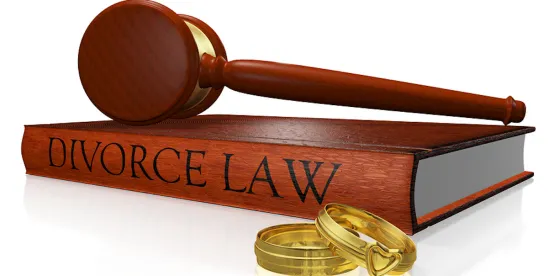When divorcing couples hold ownership interests in private companies as part of their marital estate, they will have to address a number of business issues related to these interests in their divorce settlement. Planning ahead to address these issues may help to avoid surprises and also lead to a less contentious discussion of their settlement options. This post, therefore, focuses on critical issues that divorcing couples will need to address in their divorce settlement negotiations if they have ownership interests in private companies.
Valuing a Private Company Interest Requires Current, Detailed Information
By definition, the stock of private companies is not traded in public markets. As a result, the process of determining the current market value of a private company will require assistance from an experienced business valuation expert. To provide a valuation report, the expert will need to analyze the company’s financial performance, review sales transactions of similar companies that have recently taken place in the industry and determine the value multiple used in the industry. This analysis, and the number of variables the expert is required to consider, can lead to wide variances in values when the spouses retain opposing experts.
Given the potential for a wide divergence in valuation opinions reached by the experts, spouses going through a divorce that involves private company ownership are advised to consider three things. First, the spouses will want to take steps to obtain the most up-to-date financial information regarding the company to provide to their experts because valuations can fluctuate greatly over time. Second, the scope of the information provided to the experts should be fairly broad and include documents that reflect recent valuations, offers for purchase made to the business, and previous sales of company stock or units. Our previous post focused on this specific issue.
Finally, if one spouse is transferring his or her interest in the business to the other spouse in the settlement, the transferring spouse may want to negotiate to include a lookback provision in the settlement agreement. This provision provides that if the business is sold within a set period after the divorce settlement (often within a year) for a price higher than the value used in the settlement, the transferring spouse will receive a “true up” payment. The acquiring spouse is not required to agree to this lookback provision but may be willing to do so as part of the negotiations.
Personal Goodwill May Play a Major Factor in Valuation
Another important issue related to the valuation of a business is the role that personal goodwill plays in the divorce setting. Personal goodwill is defined as:
“… [an] intangible asset arising as a result of name, reputation, customer loyalty, location, products, and similar factors not separately identified.”
The International Glossary of Business Valuation Terms
In the family law context, personal goodwill that results from a business, which is known as enterprise goodwill, can be divided between the spouses in a divorce. But personal goodwill that belongs to an individual owner/operator in the business is not divisible, and instead, it is the separate property of the spouse to whom it belongs.
“Personal goodwill is the goodwill that is attributable to an individual’s skills, abilities, and reputation.”
See Texas Pattern Jury Charge, 203.2. Personal goodwill arises in personal services businesses, such as law firms, accounting or medical practices, sales companies or financial services firms. The percentage of personal goodwill can be such a large part of the total value of the business that it is often one of the most hotly contested issues in a divorce proceeding. Indeed, in some cases, personal goodwill can amount to 60% or more of the total value of the business.
For this reason, personal goodwill tends to play an outsize role in the divorce negotiations as it may substantially reduce the value of the business to be divided in the divorce proceeding. The spouse who is subject to the application of the discount based on the personal goodwill determination may therefore want to consider the following factors before accepting the opposing expert’s personal goodwill discount. Personal goodwill is a function of reputation and prominence, and a number of areas that are discussed below can be investigated to determine if this discount should be as robust as may be claimed.
- First, most companies have a succession plan, and it should be obtained and analyzed as it may show that the spouse who is claiming the goodwill discount is not viewed as being crucial to the company or its succession plan.
- Second, whether the company maintains a key life insurance policy on the spouse claiming the discount should be determined. The absence of this policy suggests the company does not consider the spouse claiming the discount to be invaluable to the business.
- Third, the total headcount of the business should be examined. The more people who work at the business, the more an argument can be made that the value of the business is attributable to others at the company, and not as much to the spouse who is claiming the discount.
- Finally, the expert for the spouse challenging the goodwill discount will need to evaluate the connection of the company’s clients to the spouse who is claiming the discount. It may be that many or most of the company’s clients are not tied to the spouse, and that the company’s reputation is largely independent of the personal goodwill of the spouse.
The issues noted above are for the valuation expert to address, but the spouse who is challenging the goodwill discount may have knowledge about the business that will impact the analysis that applies to the calculation of the discount.
The Transfer of a Spousal Ownership Interest Raises Business Issues
In a previous post we reviewed key business issues that often arise when a spouse’s interest in a company is transferred to the other spouse as part of the divorce settlement. In this scenario, we refer to the spouse who is acquiring the full interest in the business as the acquiring spouse, and the spouse who is transferring the business interest is referred to as the transferring spouse.
The following important concerns should be part of the parties’ negotiations and final settlement documents:
- The parties should make it clear in the divorce settlement that the transferring spouse does not retain any ownership interest or other rights of any kind after the divorce from or related to the business. This includes a transfer of all rights to receive dividends, distributions, royalties, reimbursements or payments of any kind directly from or related in any way to the business.
- The transferring spouse should obtain a full, broad release not just from the acquiring spouse, but also from the company to prevent the acquiring spouse from directing the company to pursue any claims of its own after the divorce settlement has been completed.
- The transferring spouse should also seek an indemnity from the business in the divorce for any claims that are made by third parties after the divorce is final. This indemnity is particularly necessary when the transferring spouse previously worked in the business for some period.
- Finally, the acquiring spouse should consider whether it is necessary to obtain a noncompete restriction from the transferring spouse. If there is any potential for the transferring spouse to compete against the business after the divorce, this noncompete restriction may be valuable, but it will also likely require that the acquiring spouse provide some consideration to the transferring spouse. Even if a noncompete restriction is not obtained, the acquiring spouse should require the transferring spouse to sign a confidentiality agreement.
Conclusion
In some divorces, the business issues are the most difficult ones to resolve. This is more often the case when the couples have accumulated ownership interests in private companies during the marriage, and these interests must be divided as part of the divorce proceeding. Once it becomes clear that a marital divorce is going to take place, planning ahead to address these business issues will help lessen conflicts and allow for the necessary negotiations to take place relating to the ownership of interests in private companies. This type of planning includes gathering financial and governance records related to the business, meeting with the business valuation expert to discuss the valuation process, and discussing with counsel the key business terms that will be included in the final divorce settlement.




 />i
/>i

